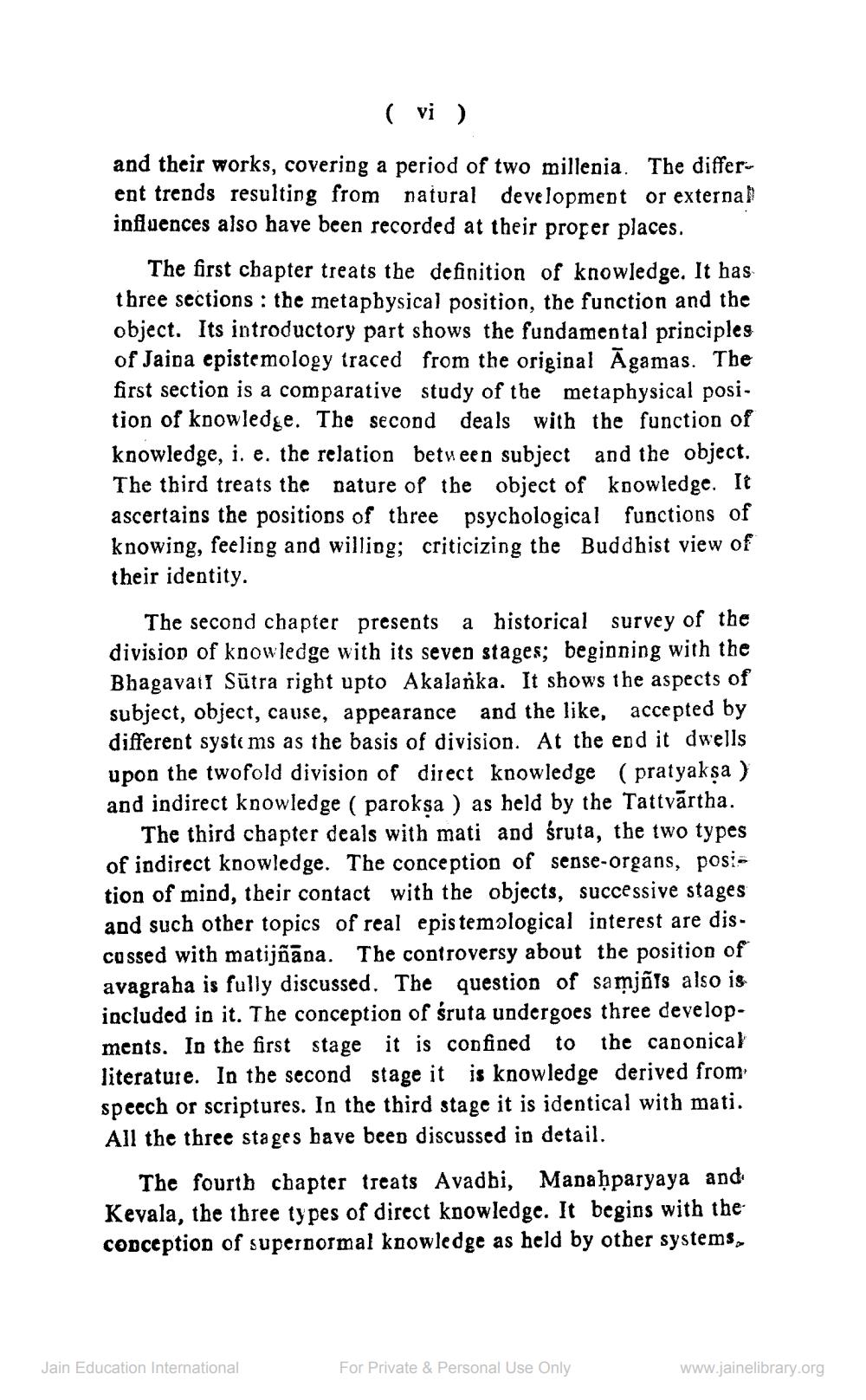Book Title: Jaina Epistemology Author(s): Indra Chandra Shastri Publisher: Parshwanath Vidyapith View full book textPage 9
________________ ( vi) and their works, covering a period of two millenia. The different trends resulting from natural development or external influences also have been recorded at their proper places. The first chapter treats the definition of knowledge. It has three sections : the metaphysical position, the function and the object. Its introductory part shows the fundamental principles of Jaina epistemology traced from the original Āgamas. The first section is a comparative study of the metaphysical position of knowledge. The second deals with the function of knowledge, i. e. the relation between subject and the object. The third treats the nature of the object of knowledge. It ascertains the positions of three psychological functions of knowing, feeling and willing; criticizing the Buddhist view of their identity. The second chapter presents a historical survey of the division of knowledge with its seven stages; beginning with the Bhagavail Sūtra right upto Akalanka. It shows the aspects of subject, object, cause, appearance and the like, accepted by different systems as the basis of division. At the end it dwells upon the twofold division of direct knowledge (pratyakșa ) and indirect knowledge (paroksa ) as held by the Tattvārtha. The third chapter deals with mati and śruta, the two types of indirect knowledge. The conception of sense-organs, position of mind, their contact with the objects, successive stages and such other topics of real epistemological interest are discassed with matijñāna. The controversy about the position of avagraha is fully discussed. The question of samjñis also is included in it. The conception of śruta undergoes three developments. In the first stage it is confined to the canonical literature. In the second stage it is knowledge derived from speech or scriptures. In the third stage it is identical with mati. All the three stages have been discussed in detail. The fourth chapter treats Avadbi, Mapahparyaya and Kevala, the three types of direct knowledge. It begins with the conception of superpormal knowledge as held by other systems Jain Education International For Private & Personal Use Only www.jainelibrary.orgPage Navigation
1 ... 7 8 9 10 11 12 13 14 15 16 17 18 19 20 21 22 23 24 25 26 27 28 29 30 31 32 33 34 35 36 37 38 39 40 41 42 43 44 45 46 47 48 49 50 51 52 53 54 55 56 57 58 59 60 61 62 63 64 65 66 67 68 69 70 71 72 73 74 75 76 77 78 79 80 81 82 83 84 85 86 87 88 89 90 91 92 ... 516
